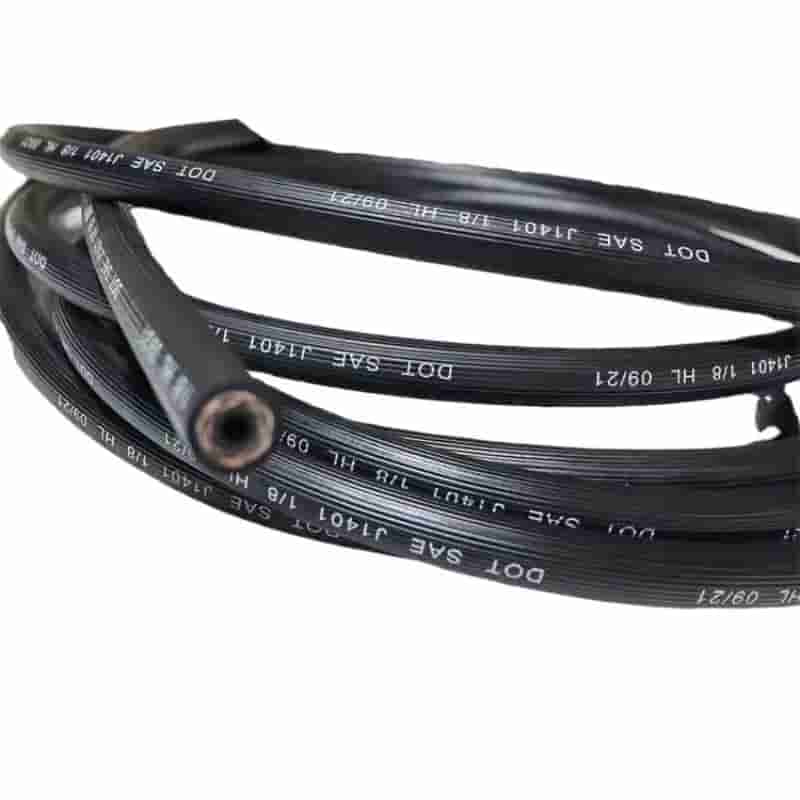Understanding the Impact of Sudden Braking on Vehicle Safety and Driver Behavior
nóv . 05, 2024 23:30 Back to list
Understanding the Impact of Sudden Braking on Vehicle Safety and Driver Behavior
Understanding the Importance of Hard Brake Lines in Vehicle Safety
When it comes to vehicle safety, the brake system is one of the most critical components. Among the various elements that contribute to the effectiveness of a vehicle's braking capability, hard brake lines play a vital role. These lines are designed to transfer hydraulic fluid from the master cylinder to the brake calipers or wheel cylinders, enabling the brakes to function properly. In this article, we will explore the significance of hard brake lines, their construction materials, advantages, and the maintenance practices necessary to ensure longevity and safety in vehicles.
What are Hard Brake Lines?
Hard brake lines are typically made from materials like steel or aluminum, designed to withstand high pressure and resist corrosion. Unlike flexible brake lines, which are made from rubber or composite materials, hard brake lines maintain their shape and rigidity, allowing for precise fluid movement under pressure. Their rigidity helps in providing a consistent and reliable braking performance, which is essential for safe vehicle operation.
Advantages of Hard Brake Lines
1. Durability and Reliability Hard brake lines are less prone to wear and tear compared to their flexible counterparts. They can withstand extreme temperatures and pressure fluctuations found in braking systems. This durability translates to a lower likelihood of leaks or failures, which can lead to significant safety hazards.
2. Better Brake Response Since hard brake lines maintain their shape, they provide a more direct and responsive connection between the brake pedal and the braking mechanism. This responsiveness is crucial during emergency situations where immediate braking is required.
3. Corrosion Resistance When properly coated or made from corrosion-resistant materials, hard brake lines can resist rust and deterioration from moisture and road salt. This quality is particularly important in regions that experience harsh weather conditions, as it prolongs the lifespan of the brake system.
4. Reduced Brake Fade Hard brake lines help in reducing brake fade, a condition where the brakes become less effective due to overheating. With a consistent fluid transfer under pressure, the braking system remains effective even during extended use.
hard brake line

Maintenance of Hard Brake Lines
To ensure the safety and reliability of hard brake lines, regular maintenance is essential. Here are a few recommended practices
1. Routine Inspections Regularly inspect brake lines for signs of wear, rust, or damage. Look for leaks or any fluid accumulation around the connections, as these can indicate potential failures.
2. Fluid Checks Brake fluid should be checked and changed according to the manufacturer’s recommendations. Old or contaminated brake fluid can lead to corrosion and reduced braking performance.
3. Protective Coatings If your vehicle operates in harsh environments, consider applying protective coatings to the brake lines to enhance resistance to corrosion.
4. Professional Service Having a qualified mechanic inspect the brake system, including hard brake lines, during regular service intervals can help identify potential issues before they become significant problems.
Conclusion
In conclusion, hard brake lines are an integral component of a vehicle's braking system, contributing to safety and reliability. Their durability, responsiveness, and resistance to corrosion make them a preferred choice for many automotive applications. However, like all vehicle components, they require proper maintenance and regular inspections to function effectively. By understanding the importance of hard brake lines and taking proactive measures in their care, vehicle owners can enhance their safety on the road, ensuring a smooth and secure driving experience for themselves and for others. Always remember a well-maintained brake system is key to vehicle safety.
